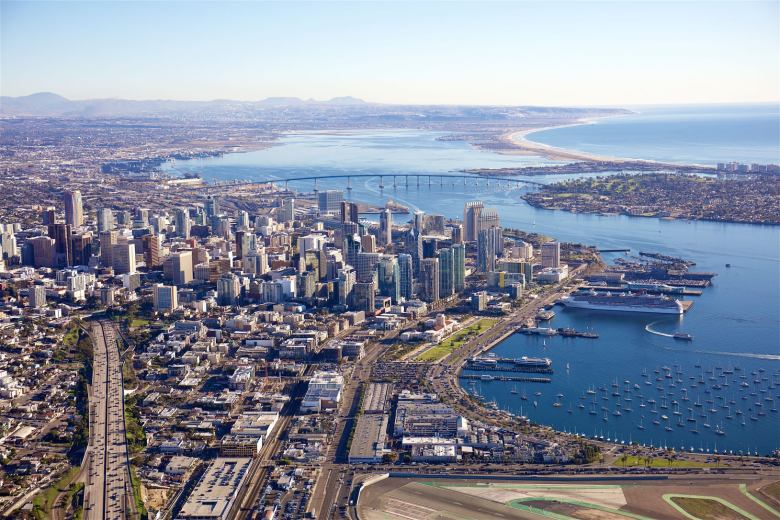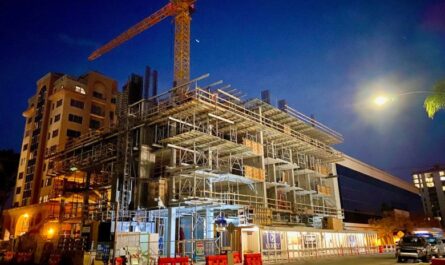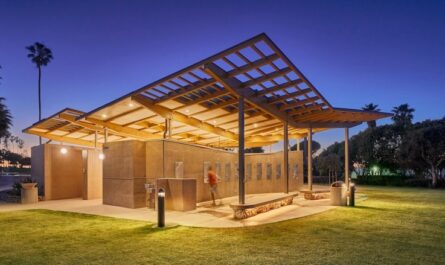New research from the National Endowment for the Arts confirms what many people already know: diverse towns like San Diego are more likely to draw the imaginative and creative workforce that will shape the future.
However, we are seeing a concerning revival of intolerance, racial, ethnic, gender, and language discrimination and prejudice at the same time that we are entering a new period of economic revolution propelled by automation, artificial intelligence, and global interdependence. This backlash jeopardizes our shared economic future in addition to tearing at the foundation of our democracy.
Instead of strengthening diversity, equity, and inclusion to meet the demands of a changing economy, we are witnessing a reversal of the very values that DEI initiatives were intended to uphold. Progress of decades is under jeopardy. Even worse, some of the most powerful figures in politics and industry, most notably Elon Musk and President Trump, are deliberately trying to undermine and discredit DEI frameworks, calling them harmful, unneeded, or polarizing.
It couldn’t be further from the reality.
Three major factors that contribute to success in the contemporary economy are talent, technology, and tolerance, according to urban theorist Richard Florida. Tolerance is the cornerstone of a vibrant, inclusive, and creative society, even if the first two frequently take center stage in discussions. However, it is the aspect that is most under attack.
DEI principles, which are rooted in the Civil Rights Act of 1964 and upheld by organizations such as the Equal Employment Opportunity Commission, have been a beacon of hope for extending opportunity, promoting equity, and spurring innovation for almost 60 years. These values boosted key economic sectors, expanded the talent pool, and provided opportunities for millions of people.
That foundation is starting to crumble now.
DEI programs have been methodically dismantled, discredited, and defunded under the Trump administration. Under the radar, that rollback has persisted, frequently in silence. Academic institutions, large enterprises, and federal agencies that were formerly hailed as leaders in DEI public commitment are disappearing. Instead of it? An increasing acceptance of prejudice, exclusion, and cultural animosity.
This goes beyond a simple cultural backwardness. There is an impending economic crisis.
We find ourselves at a fork in the road. Success in a global economy where machines can do more and more of the jobs that humans used to do will depend less on repetitive work and more on the human traits of creativity, teamwork, cultural acuity, and empathy that are fostered by inclusive, diverse cultures.
In short, innovation dies without equity, diversity, and inclusion.
Cities that recognize this fact will prosper in the twenty-first century. Cities are making investments in diversity and openness, including Boston, San Francisco, San Diego, Austin, Seattle, and Denver. They are encouraging intercommunal communication, embracing immigrants, and promoting inclusive public areas. Although they are not flawless, they are making an effort, and in the process, they are drawing in the very individuals, concepts, and sectors that propel economic expansion.
Other cities, meanwhile, are taking the opposite tack, locking their doors, rejecting pluralism, and adopting antiquated, exclusive worldviews. The effects are already apparent: dwindling populations, slowed innovation, and a brain drain as bright people leave for more hospitable settings.
As artificial intelligence advances, the urgency only grows. As more activities are automated, communities and businesses will stand out for their capacity to draw in and keep creative thinkers. Think differently, as Steve Jobs famously advised. It’s no longer a privilege to think that way. It is a need for the economy.
The future will be shaped by institutions and communities that foster autonomous, inclusive thinkers, irrespective of background, ability, gender, religion, race, or orientation. Those who don’t will be abandoned.
The indications of increasing intolerance are really concerning. Hate crimes against Asian Americans, Black Americans, LGBTQ+ people, women, immigrants, and Jews have increased. Systemic bias and structural inequity continue to exist, even in progressive places. These unfriendly surroundings not only harm people but also stifle innovation and turn off genius.
This is not just a moral failure. It is an economic one.
Get neighborhood news in your inbox. It’s free and enlightening.
Become one of the 20,000+ individuals who receive breaking news alerts and the Times of San Diego in their inbox every day at 8 a.m.
Weekly updates from San Diego communities have also been provided! You acknowledge and agree to the terms by clicking “Sign Up.” Choose from the options below.
People leave when they don’t feel appreciated, safe, or accepted. When they do, they bring their enterprises, ideas, abilities, and potential with them. The harm is not instantaneous. Repairing it may take millennia.
We no longer compete with one another for industrial production or natural resources. Human potential is what we are vying for. For creativity, fortitude, and resourcefulness. Intangible assets like intellectual capital, cultural vibrancy, and adaptability and evolution are becoming more and more important components of our economy.
Cities like San Diego can spearhead this change if they continue to uphold their commitment to equity, tolerance, and transparency. However, people who prioritize exclusion over inclusion, barriers over bridges, and fear over understanding will soon fall behind and struggle to catch up.
There is no more obvious or pressing decision for us to make:
Accept tolerance and prosper.
Wither and reject it.
John Eger is an emeritus professor at San Diego State University’s School of Journalism and Media Studies. Prior positions include Senior Vice President of CBS Worldwide Enterprises, Legal Assistant to FCC Chairman Dean Burch, and Telecommunications Advisor to President Gerald R. Ford.

 by
by 

